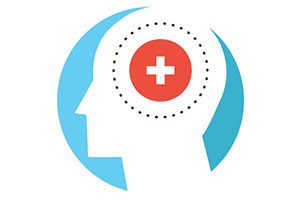 Dementia is a loss of brain function that occurs with certain diseases. Alzheimer’s disease (AD), is one form of dementia that gradually gets worse over time. It affects memory, thinking, and behavior.
Dementia is a loss of brain function that occurs with certain diseases. Alzheimer’s disease (AD), is one form of dementia that gradually gets worse over time. It affects memory, thinking, and behavior.
Alzheimer’s disease (AD) is a progressive degenerative disease of the brain from which there is no recovery. The disease slowly attacks nerve cells in all parts of the cortex of the brain and some surrounding structures, thereby impairing a person’s abilities to govern emotions, recognize errors and patterns, coordinate movement, and remember. Ultimately, a person with AD loses all memory and mental functioning.
Alzheimer’s disease is the most common cause of dementia in people age 65 years and older. Dementia is significant loss of cognitive functions such as memory, judgment, attention, and abstract thinking.
There are three brain abnormalities that are the hallmarks of the Alzheimer’s disease process:
Plaques. A protein called beta-amyloid accumulates and forms sticky clumps of amyloid plaque between nerve cells (neurons). High levels of beta amyloid as associated with reduced levels of the neurotransmitter acetylcholine. (Neurotransmitters are chemical messengers in the brain.) Acetylcholine is part of the cholinergic system, which is essential for memory and learning and is progressively destroyed in Alzheimer’s disease.
Tangles. Neurofibrillary tangles are the damaged remains of macrotubules, the support structure that allows the flow of nutrients through the neurons. A key feature of these tangled fibers is an abnormal form of the tau protein, which in its normal version helps maintain healthy neurons.
Loss of nerve cell connections. The tangles and plaques cause neurons to lose their connection to one another and die off. As the neurons die, brain tissue shrinks (atrophies).
For the complete informative article please follow this link New York Times.
